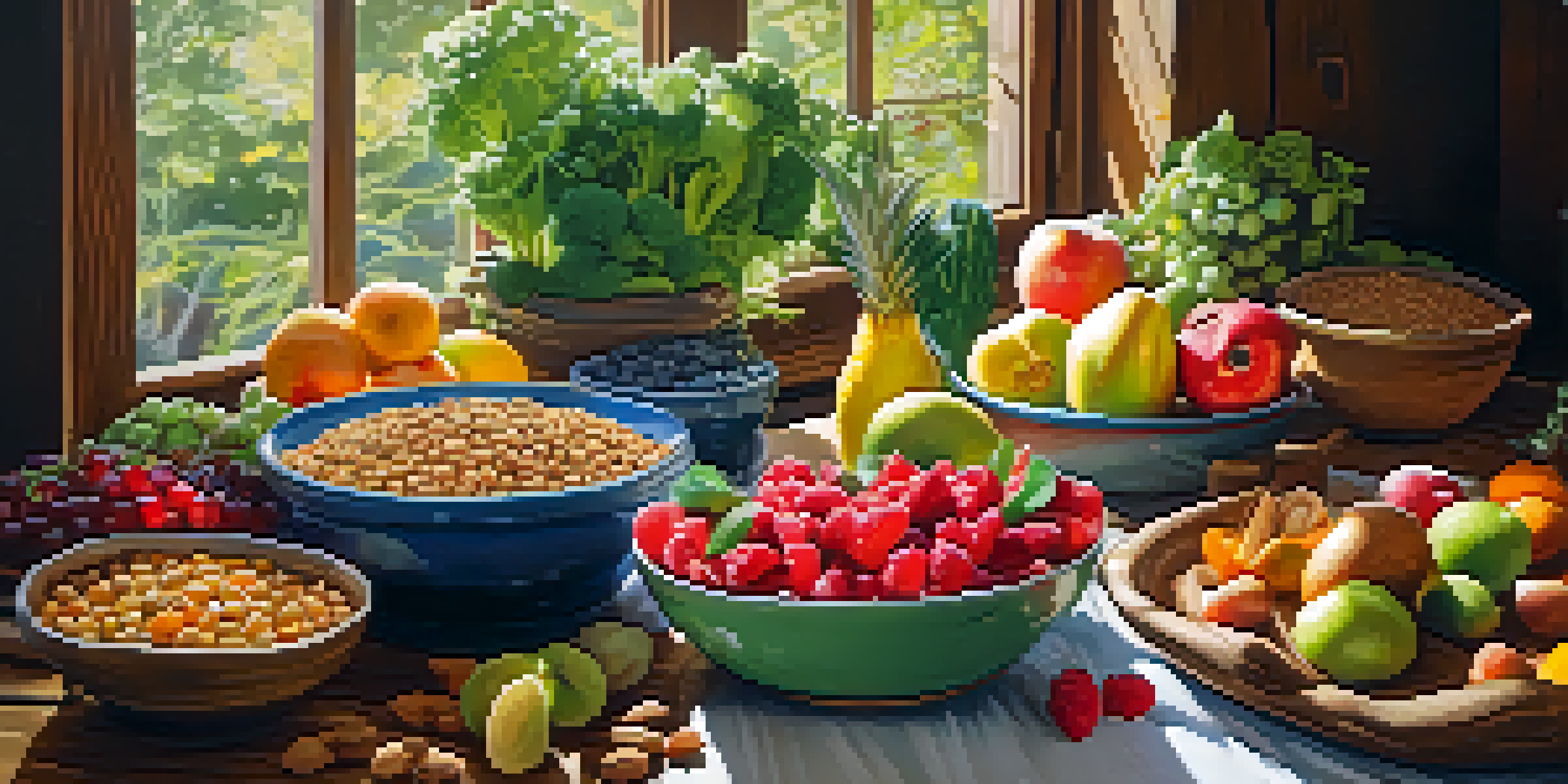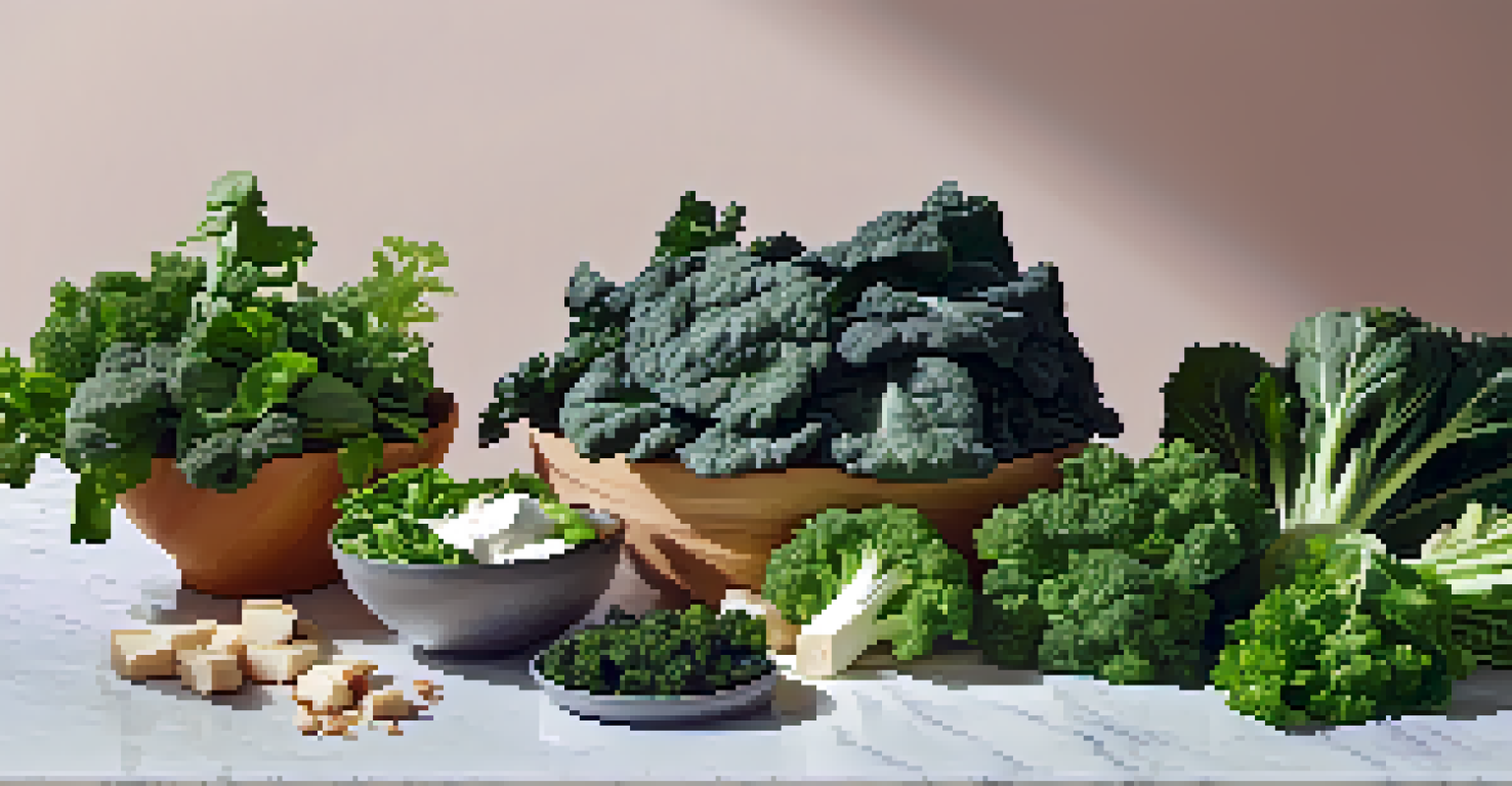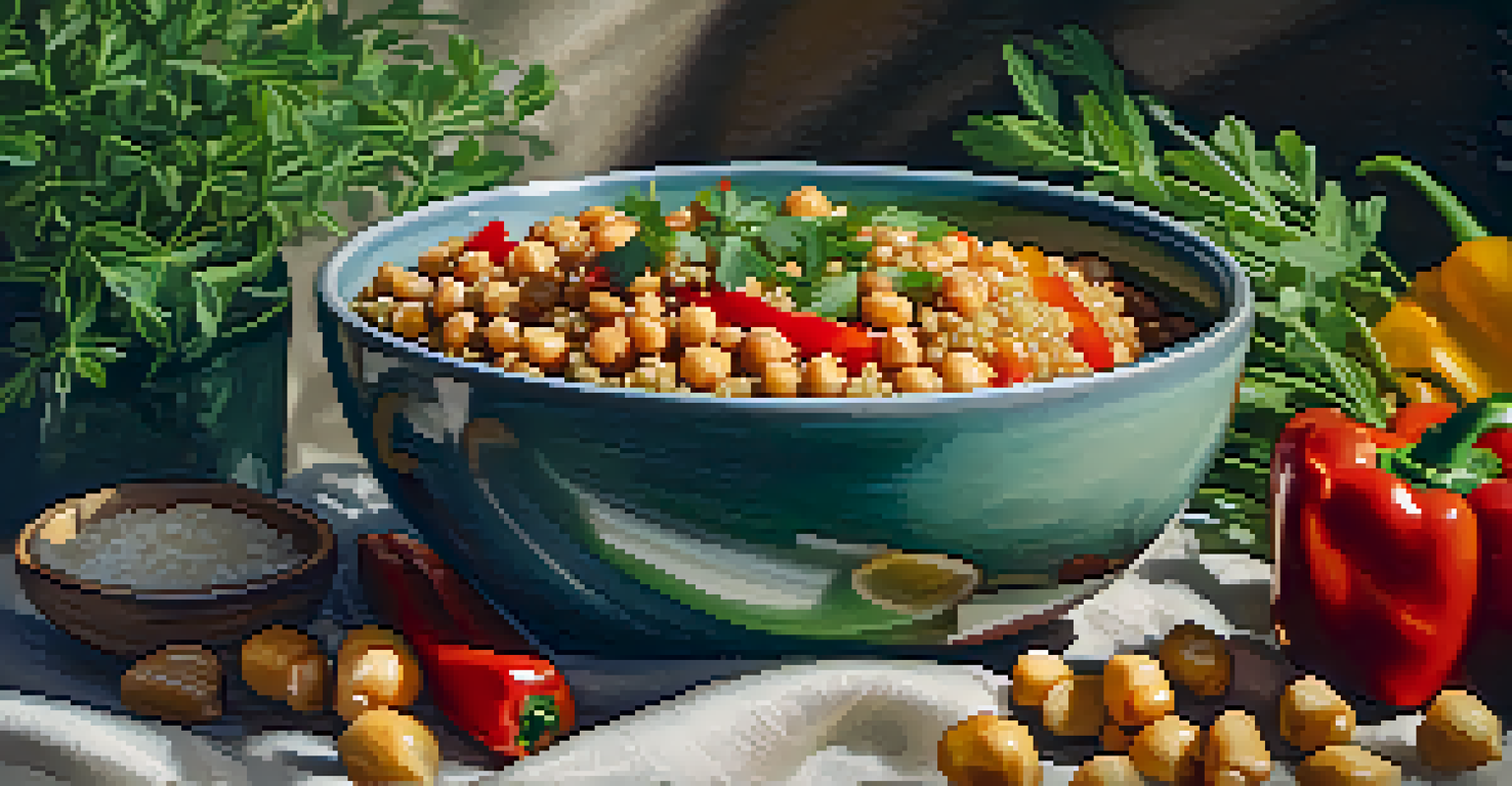Key Minerals in Vegan Foods: Importance for Overall Wellbeing

Understanding the Role of Minerals in Our Diet
Minerals are vital nutrients that our bodies need to function properly. They play crucial roles in everything from building strong bones to regulating heartbeat. While many people think of vitamins when considering nutrition, minerals are equally important for overall health.
Let food be thy medicine and medicine be thy food.
In a vegan diet, sourcing these essential minerals is key to maintaining wellbeing. Since plant-based foods can sometimes lack certain minerals found in animal products, it's important to know which vegan sources can help fill those gaps. Staying informed empowers vegans to make health-conscious food choices.
Not all minerals are created equal; some are needed in larger amounts, while others are trace minerals required in smaller quantities. By understanding which minerals are most important, vegans can tailor their diets to ensure they meet their nutritional needs effectively.
Calcium: More Than Just Dairy
Many people associate calcium with dairy products, but there are plenty of vegan sources packed with this essential mineral. Leafy greens like kale and collard greens, as well as fortified plant milks and tofu, provide excellent alternatives. Incorporating these foods can help support bone health and prevent osteoporosis.

Calcium plays a crucial role in muscle function, nerve transmission, and hormone secretion. For vegans, ensuring adequate calcium intake is important, especially if they are active or aging. Instead of relying solely on supplements, focusing on whole foods can be a more balanced approach.
Minerals Are Essential for Health
Minerals play crucial roles in bodily functions, making it vital for vegans to source them from plant-based foods.
To enhance calcium absorption, pairing these foods with vitamin D-rich sources, such as sun exposure or fortified foods, is beneficial. This combination can help maximize the body's ability to utilize calcium effectively, promoting overall health.
Iron: Fueling Your Energy Levels
Iron is another key mineral that vegans should pay attention to, as it’s vital for transporting oxygen throughout the body. While red meat is a common source of iron, plant-based options like lentils, chickpeas, and quinoa can provide ample amounts. Understanding these alternatives is crucial for maintaining energy levels.
You are what you eat, so don't be fast, cheap, easy, or fake.
There are two types of dietary iron: heme and non-heme. Heme iron is found in animal products and is absorbed more efficiently by the body, while non-heme iron comes from plant sources and requires a bit more effort for absorption. Including vitamin C-rich foods, like bell peppers or citrus fruits, can significantly enhance non-heme iron absorption.
For those on a vegan diet, it’s important to monitor iron levels, especially if fatigue or weakness occurs. Regular blood tests and a well-planned diet can help keep iron levels in check, ensuring optimal energy and health.
Zinc: The Immune System Booster
Zinc is a mineral that plays a significant role in immune function, wound healing, and DNA synthesis. For vegans, sources of zinc include beans, nuts, seeds, and whole grains. Incorporating a variety of these foods can help meet daily zinc requirements.
Despite its importance, zinc can be less bioavailable in plant foods due to phytates, which hinder absorption. Soaking beans, nuts, and seeds before consumption can reduce phytate levels and enhance zinc bioavailability. This simple practice can make a big difference in your overall zinc intake.
Diverse Vegan Foods Fulfill Needs
Incorporating a variety of fruits, vegetables, grains, nuts, and seeds helps ensure a balanced intake of essential minerals.
A zinc deficiency can lead to weakened immunity and other health issues, so being mindful of zinc-rich foods is essential. Regularly including these foods in your meals can help support your immune system and overall wellbeing.
Magnesium: The Relaxation Mineral
Magnesium is often referred to as the 'relaxation mineral' because of its role in promoting relaxation and reducing stress. Leafy greens, nuts, seeds, and whole grains are excellent plant-based sources of magnesium. Including these foods in your diet can help maintain a sense of calm and balance.
Beyond its calming effects, magnesium is crucial for many bodily functions, including muscle and nerve function, blood sugar control, and blood pressure regulation. It’s a mineral that many people may not realize they are missing out on, particularly in a fast-paced lifestyle.
To ensure adequate magnesium intake, aim to include a variety of magnesium-rich foods in your meals. This not only supports relaxation but also contributes to overall health, making you better equipped to face daily challenges.
Iodine: Essential for Thyroid Health
Iodine is a critical mineral that supports thyroid function, which regulates metabolism and energy levels. While many people get iodine from iodized salt, vegans should be aware of alternative sources, such as sea vegetables like seaweed. These can be a tasty addition to salads or soups.
A deficiency in iodine can lead to thyroid problems, which can affect energy levels and overall health. For those on a vegan diet, incorporating iodine-rich foods is essential to support thyroid health. It's a small adjustment that can make a significant difference in wellbeing.
Monitor Your Mineral Intake
Regularly checking mineral levels and meal planning can support optimal health and energy for those on a vegan diet.
If seaweed isn’t your thing, consider using iodized salt in cooking. This simple swap can help ensure that you’re meeting your iodine needs without complicating your meals.
Selenium: The Antioxidant Powerhouse
Selenium is an essential mineral that acts as a powerful antioxidant, protecting cells from damage. It’s also important for thyroid function and immune health. For vegans, Brazil nuts are one of the richest sources of selenium, and just a small handful can meet daily requirements.
Incorporating selenium-rich foods into your diet can help boost your body's defenses and support overall health. Other plant-based sources include whole grains and legumes, but Brazil nuts stand out for their high selenium content. This makes them a great snack or topping for various dishes.

Regularly including selenium in your meals can support your body's ability to combat oxidative stress. This is particularly important in today's world, where we are exposed to various environmental toxins and stressors.
Putting It All Together: A Balanced Vegan Diet
In conclusion, understanding the importance of key minerals in vegan foods is essential for overall wellbeing. By focusing on a diverse range of plant-based foods, you can easily meet your mineral needs while enjoying a colorful and flavorful diet. The key is balance and variety.
Meal planning can be a helpful strategy to ensure you’re getting a rich array of minerals. Incorporating a wide variety of fruits, vegetables, grains, nuts, and seeds not only enhances nutrient intake but also keeps meals exciting. Think of your plate as a canvas; the more colors, the better!
Ultimately, a well-planned vegan diet can provide all the essential minerals your body craves. By being mindful of your food choices, you can thrive on a plant-based diet, enjoying both health and vitality.